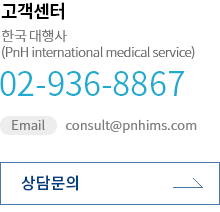면역치료 | 췌장암 CAR-T 임상 CART-meso cells
페이지 정보
작성자 HK HIS 작성일19-09-16 18:18 조회5,451회 댓글0건관련링크
본문
Brief Summary:
This is a study in which pancreatic cancer patients receive a immunotherapy with CART-meso cells administered at 3 days after one dose of cyclophosphamide. CART-meso cells are patients' own T cells lentivirally transduced to express anti-mesothelin scFv fused to TCRζ and 4-1BB costimulatory domains.The lymphodepletion with cyclophosphamide may prolong the persistence of CART cells.
Pancreatic Cancer
Biological: CART-meso cells
Detailed Description:
This study is being conducted to assess the safety and efficacy of immunotherapy with CART-meso cells in dose escalation design. The trial will begin in Cohort 1 and progress to Cohorts 2, depending upon dose limiting toxicity (DLT) assessment .
Subjects will be enrolled serially, but infusions will be staggered to allow assessment of DLTs for determination of cohort progression, expansion, or dose de-escalation.
Cohort 1 subjects will receive a single dose of 1-3x10^7 /m^2 lentiviral transduced CART-meso cells after conditioning chemotherapeutic regimen.
Cohort 2 subjects will receive a single dose of 1-3x10^8 /m^2 lentiviral transduced CART-meso cells cells after conditioning chemotherapeutic regimen.
Dose limiting toxicity is defined as any adverse reactions at level 3 or above that may be associated with CART-meso within 4 weeks after infusion.
Arms and Interventions
Arm
Experimental: CART-meso cells
A single dose of CART-meso T cells will be administered intravenously.The dose is 1-3×10^7/m^2 CART positive cells(chort 1)or 1-3×10^8/m^2 CARTpositive cells(chort 2).
Intervention
Biological: CART-meso cells
CART-meso is a 2nd CAR, with mesothelin as target protein, 4-1BB as co- stimulator. The infusion will be scheduled to occur 3 (±1) days after a single dose of 1.5 grams/m^2 of cyclophosphamide, which will be administered according to standard procedures, Thereby enhancing the efficacy of anti-tumor, reducing the potential of side effects.
Primary Outcome Measures :
- Safety of CART-meso infusion: number of adverse events [ Time Frame: 60 months ]
Number of Adverse Events evaluated with NCI CTC AE, version 4.0[Safety evaluation]
Secondary Outcome Measures :
- Clinical response of CART-meso [ Time Frame: 60 months ]
Number of patients with tumor response including overal remission ,complete ression,progression-free survival,progressive disease ,etc.
- CAR-T cell detection [ Time Frame: 60 months ]
Detection of transferred T cells in peripheral blood or bone marrow using multi-parameter flow cytometer.
Ages Eligible for Study: | 18 Years to 70 Years (Adult, Older Adult) |
Sexes Eligible for Study: | All |
Accepts Healthy Volunteers: | No |
Criteria
Inclusion Criteria:
· Signed informed consent
· Unresectable or metastatic pancreatic cancer
· Persistent cancer after at least one prior standard of care chemotherapy for advanced stage disease
· 18 - 70 years of age
· ECOG performance status of 0 or 1
· Life expectancy greater than 3 months
· Satisfactory organ and bone marrow function
· Meets blood coagulation parameters
· Male and Female subjects of reproductive potential agree to use approved contraceptive methods
Exclusion Criteria:
· Participation in a therapeutic investigational study within 4 weeks prior to the screening visit
· Anticipated need for systemic chemotherapy within 2 weeks before apheresis and infusion
· Active invasive cancer other than pancreatic cancer
· HIV, HCV, or HBV infections
· Active autoimmune disease requiring immunosuppressive therapy within 4 weeks prior to screening visit, with exception of thyroid replacement
· Ongoing or active infection
· Planned concurrent treatment with systemic high dose corticosteroids
· Patients requiring supplemental oxygen therapy
· Prior therapy with gene modified cells
· Previous experimental therapy with SS1 moiety, murine or chimeric antibodies
· History of allergy to murine proteins
· History of allergy or hypersensitivity to study product excipients (human serum albumin, DMSO, and Dextran 40)
· Clinically significant pericardial effusion, CHF, or cardiovascular condition that would preclude assessment of mesothelin induced pericarditis or that may worsen as a result of toxicities expected for this study
· Pregnant or breastfeeding women






